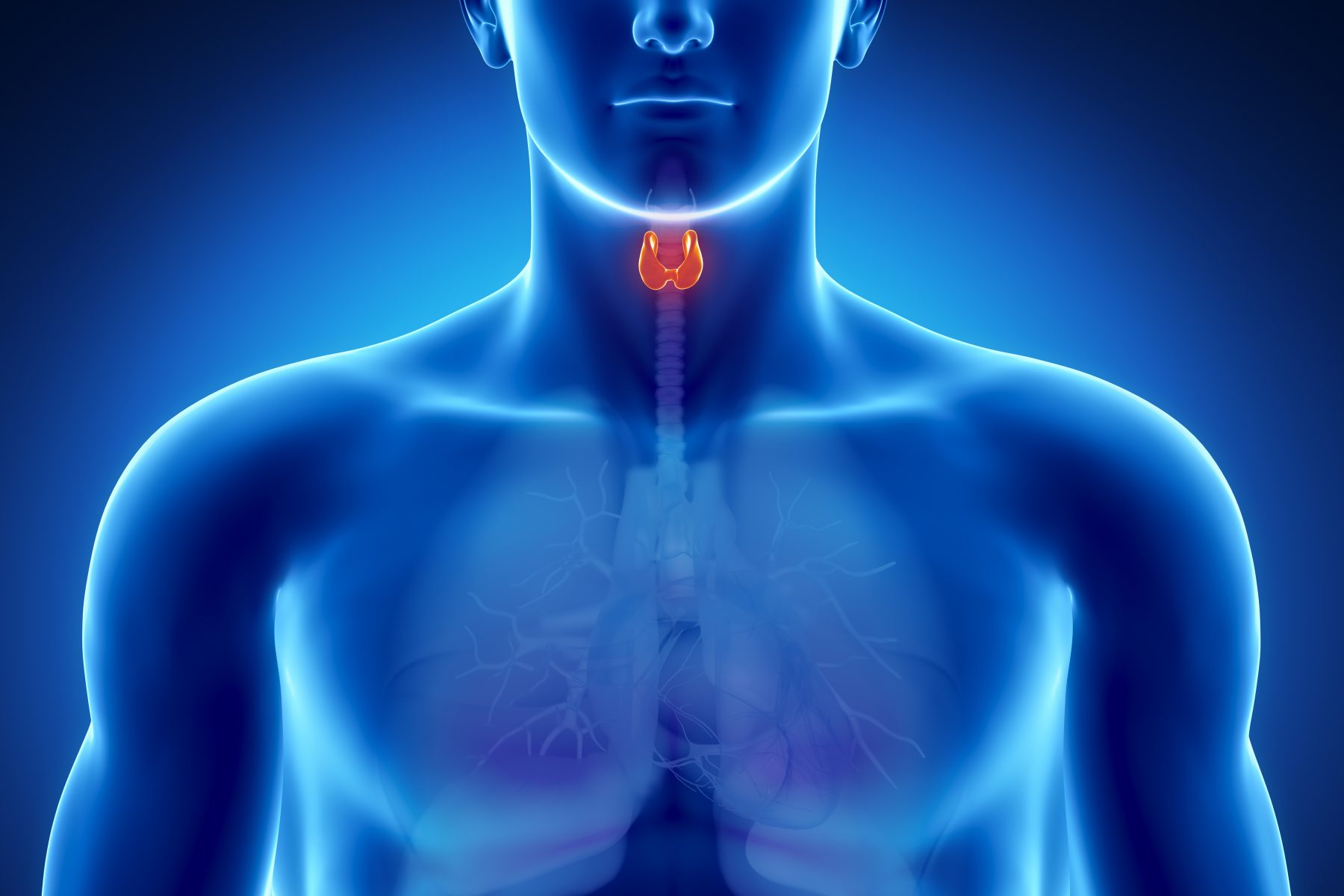
Thyroid Function: The Biochemistry Within
- Dry skin and brittle nails
- Feeling tired, weak, or depressed
- Not being able to stand the cold
- Heavy or irregular menstrual periods
- Constipation
- Memory problems or having trouble thinking clearly
Thyroid Function: Breaking it Down
Thyroid hormone production is not a simple thing. There are a few checks and balances that regulate thyroid hormone production: the hypothalamus in the brain, the pituitary gland, and the thyroid gland. This system is intricately regulated and a savvy physician should take all of these things into consideration with a hypothyroid patient.
Here is a quick refresher on thyroid physiology:
- The hypothalamus in the brain senses that there are low levels of thyroid hormones (T3 and T4).
- The hypothalamus sends a signal (TRH) to the pituitary gland.
- The pituitary, in turn, sends a signal to the thyroid gland (TSH) that it’s time to manufacture more thyroid hormone.
- The thyroid gland then makes thyroid hormones (T3 and T4).
- In the liver and in cells throughout the body, T4 is converted to T3, which is the active form of the hormone in the body.
- T3 and T4 levels tell the hypothalamus and pituitary gland that levels are normal. (source)
KEY
TRH- thyrotropin-releasing hormone
TSH- thyroid-stimulating hormone
T3- Tri-iodothyroxine, active thyroid hormone (5%)
T4- Thyroxine, inactive thyroid hormone (95%)
source
Getting Thyroid Levels Just Right: Your Test Results
Thyroid test results, taken together with a person’s symptoms, are absolutely essential when diagnosing hypothyroidism. Testing your thyroid function usually involves measuring TSH and T4. However integrative and functional medicine doctors like to collect more information including T3 (free and total), thyroid antibodies, T4 (free and total), and reverse T3. We recommend a Complete Thyroid Panel such as this one: Precision Point Diagnostics Complete Thyroid Panel.
TSH is the body’s way of telling the thyroid gland that there’s a shortage of thyroid hormone (T3 and T4) and that it’s time to manufacture more. TSH is an important clue when determining hypothyroidism. The normal reference range for TSH on most lab tests is [0.4-4.5 mIU/L ]. However, integrative and functional clinicians often consider the optimum range to fall between [0.5-3.0 mIU/L].
High TSH means you have low levels of thyroid hormones (T3 and T4). However, it makes sense to measure T3 and T4 directly since these are the hormones we are interested in. T4 is the inactive abundant form (making up a whopping 95% of thyroid hormone). And T3 makes up only 5% of the total because it is the active, powerful form of the hormone. You don’t want too much of a good thing. Therefore the body makes a lot of T4 and then the liver can convert T4 into T3, the active thyroid hormone.
Primary Hypothyroidism is characterized by High TSH
Secondary Hypothyroidism is characterized by normal TSH, Low T4, and Low T3
If T3 is low, a person will have a number of symptoms that are associated with low thyroid such as fatigue, weight gain, depression, feeling cold, constipation, gas, bloating, fibromyalgia-like pain, brain fog, difficulty concentrating, and hormonal imbalances. Standard medicine measures TSH and T4 in routine testing. However, if you think you have hypothyroidism or have a history of hypothyroidism, make sure to ask your doctor to measure T3 (total and free) as well.
This is only a cursory explanation of thyroid physiology, pathology, and testing. For more details please see these resources:
This article lays the groundwork for understanding hypothyroidism. Check out a related article, Natural Treatment Options for Hypothyroidism.
Summary
The thyroid is the master regulator of your metabolism and there are lab tests available to take an in-depth look at your body’s thyroid function. A few checks and balances exist within the human body to make sure the thyroid system is running well. TSH tells the body that thyroid hormones are too low and to make more. T3 is the most active form of thyroid and levels that are too low will lead to hypothyroid symptoms such as dry skin, chronic fatigue, constipation, memory problems, brain fog, and depression. Routine thyroid tests typically measure TSH and T4 only. Integrative and functional medicine doctors prefer to also measure T3 (free and total), T4 (free and total), thyroid antibodies, and reverse T3 for a more comprehensive analysis of a person’s thyroid function. A knowledgeable physician practicing integrative and functional medicine can help you determine if your thyroid function is optimal and if not, how to fix it.
